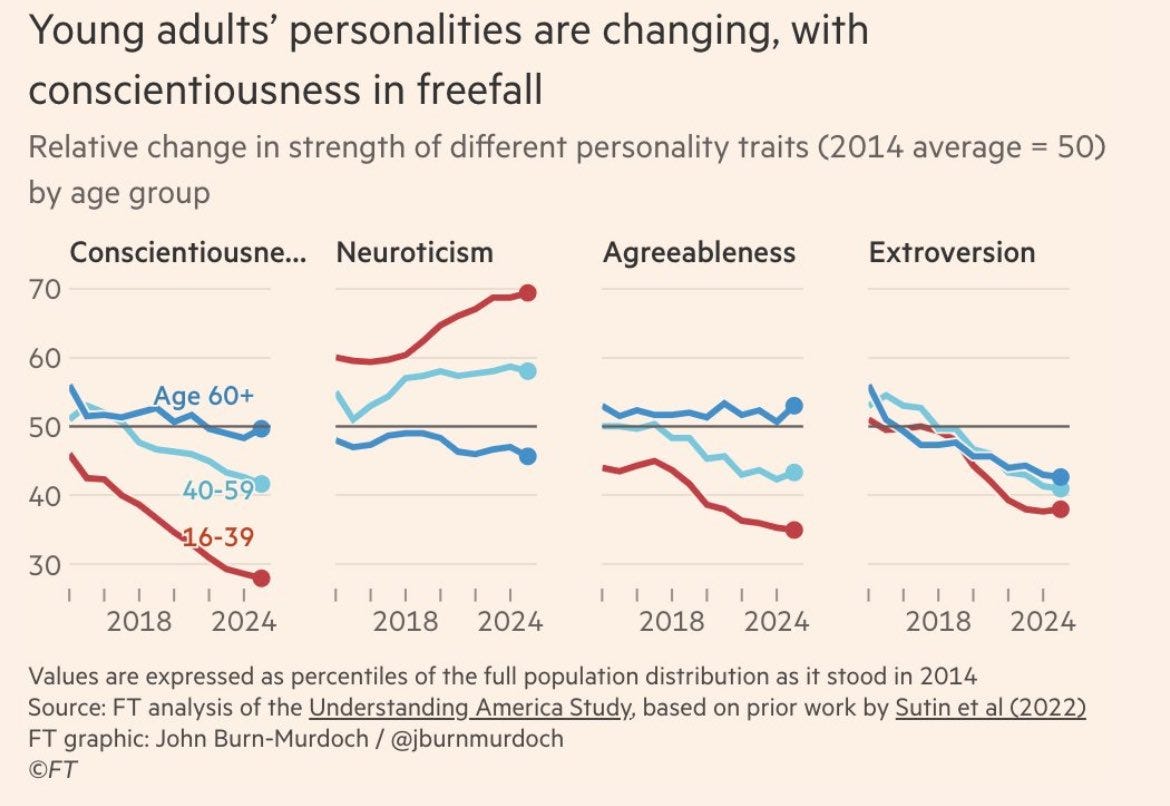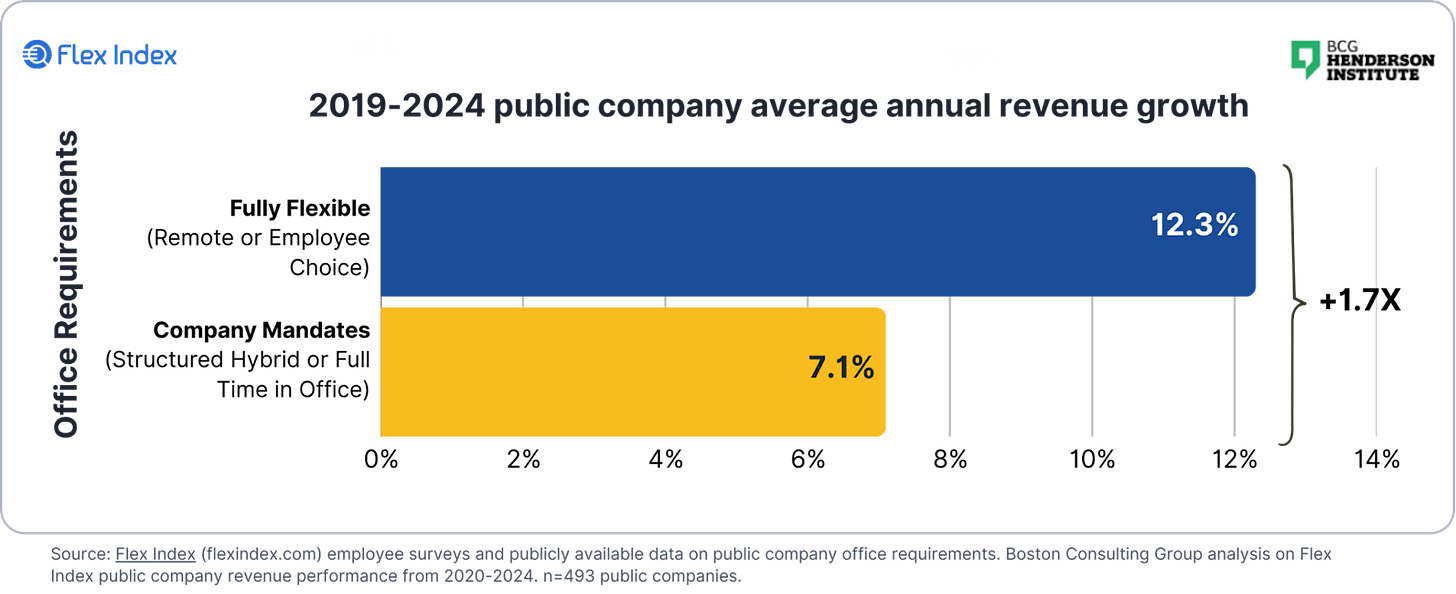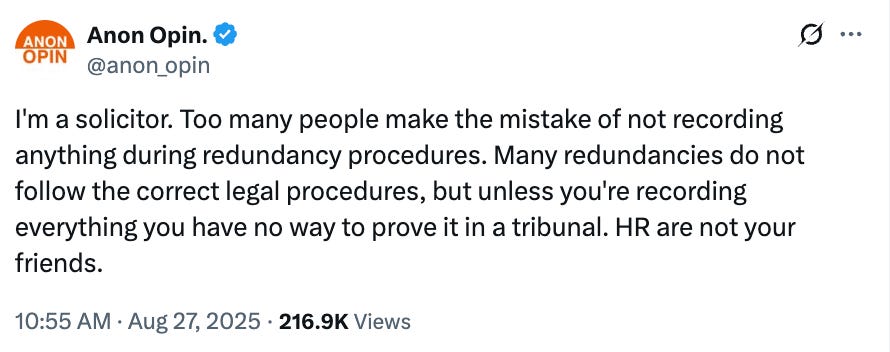Will changes to our personality ruin workplace culture?
ALSO: what impact does RTO have on company culture?
The summer’s over, baby. Look out the window. Summer’s gone. I know you weren’t really paying attention to work chat while the weather was good, so let’s recap on what you missed.
Last month the FInancial Times published an article by John Burn Murdoch in the form of an analysis of personality data, specifically looking at what are styled the Big Five personality traits: openness, conscientiousness, extraversion, agreeableness, and neuroticism.
The paper pulled no punches with the headline, observing that conscientiousness was ‘in freefall’. I wanted to go deeper with this insight because it has the potential to transform how we build workplace cultures.
The research is fascinating because it surveys a consistent panel of 7000 adults each year. The drops in the traits described are in the same people over time: we’re becoming less extroverted, less conscientious and less agreeable.
Typically these five factors are regarded as a statistically reliable way to measure personality. Unlike methodologies like Myers Briggs these factors prove consistent over time and psychologists take a view that much of the variance of human personality can be understood using these factors. Interestingly these traits also prove predictive for other outcomes. Conscientiousness for example predicts academic success and job performance, neuroticism can predict mental health issues.
This matters in the context of work because teamwork is entirely predicated on the idea of us being agreeable and conscientious and to some extent leaning into whatever extroversion we feel. If teamwork has been upended then it has implications for how we build cultures. If you have a culture that is based on attentive service and building connection with customers then it’s possible that those things no longer come as standard.
If these traits are really in freefall it will be hugely consequential for work - both how we perform it and how we team with colleagues.
The vast majority of the coverage of Burn Murdoch’s analysis was positive, but there were a couple of critical posts that people dropped in the comments when I first shared it. The gist of the criticism was that the effect size of the changes was far smaller than the graph suggested.
‘The youngest age group, 39 and younger, which was the focus of all the fuss, shows mean conscientiousness score of 35.51 out of a range of 9-45 in their 2015–2017 data, the first data point available. That's actually pretty high. By the latest data point, 2023–present, it had dropped to 33.26…actually still pretty high. That's a drop of a mere 2.28 points.’
Psychologist Jay Van Bavel challenges this pushback suggesting that while that change might seem numerically small, it is substantial:
‘The Flynn effect is perhaps the most famous personality change. IQ grew a full standard deviation (14 points) in 66 years. Yet the change in conscientiousness is happening even faster. The blog [challenging the effect size] notes that it dropped .4 SD in a mere 7-8 years. The author claims this is a very small effect. Yet, If this trend continues, it will easily be larger than the Flynn effect--it's changing 3 to 4 times faster than IQ did. We need to put effect sizes in a broader context to understand them. These personality changes are actually very sizable by historical standards.’
I especially enjoyed the contribution of Professor Alex Haslam. Haslam looked at the questions in the Big Five survey that generate the conscientiousness score:
"I work hard to accomplish my goals"
"I am dependable and can be relied upon"
"I am willing to put in the effort to complete a task, even if it's difficult"
"I am able to resist temptations that would derail my progress"
"I believe that rules should be followed whenever possible"
His conclusion was that it was as likely that the changes reflected ‘widespread disenchantment with such things as rampant managerialism’. Work has just become so dull and bureaucratic that we struggle to be conscientious.
Overall I err on the side of feeling that John Burn Murdoch has revealed something that is of huge significance, and will have a major impact on how we build teams.
I took this conversation to the podcast, talking to Nick McClelland, the CEO of Byrne Dean, an agency that specialises in dealing with cultural issues inside organisations. One person describes Byrne Dean as the ‘best kept secret in the City’.
We talk about the research and what it means for work.
Listen: website / Apple / Spotify
Another sign that consultancy firms are standing on a cliff edge: a $400k Deloitte report for the Australian government was caught having unchecked AI content - including half a dozen references that didn’t exist, and an invented quote of a court judgment
I liked this, in a round-up on Manchester United’s defeat to Grimsby Town, veteran sport journalist Henry Winter observes that ‘team-first, individual-second’ cultures are becoming less common. As Winter says, ‘What’s happening at United is not a story of bad players but bad culture and poor leadership’
‘Does forcing people into the office really improve a company’s culture?’ asks The Economist, writing about the impact of hybrid working on workplace mojo. It reports a study that found that ‘firms which insisted on workers returning to the office after the pandemic saw job satisfaction fall and staff turnover rise’. The piece delves into data plundered from Glassdoor reviews finding that employers that ordered a full RTO were rated by employees as having more agility, but were seen as being less supportive, and more toxic. Leadership was also perceived as being worse. (Some good comments on LinkedIn to this)
On similar lines, Flex Index published results of some BCG research into the performance of US organisations and then matched it to their working policies. Organisations that were more flexible tended to grow faster than firms who were fully onsite:
Lots of comments on the last newsletter post about AI coaches. One especially brutal one came from Lee: ‘For me BetterUp’s app is just what work offers to staff when they’re feeling down about not being developed. Manager not showing any interest in you? We’ve got you a BetterUp subscription. It’s the new Headspace sub, now get back to your 996.’
Is your boss a dickhead? It’s not a sackable offence to let him know according to a UK employment tribunal
An MIT report found that 95% of company AI pilots were failing to produce any benefits. The report suggests that every day use of ChatGPT benefits from its flexibility, but workplace implementations stall because ‘they don’t learn from or adapt to workflows’
While I’m posting that anonymous post I’ll give another toot on this post about Subject Access Requests (which are law in the UK and the EU). More than a handful of people have contacted me saying this post got them a much improved settlement when their work was performance managing them out of the business







